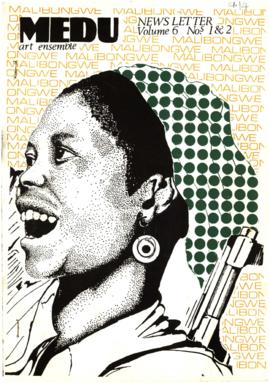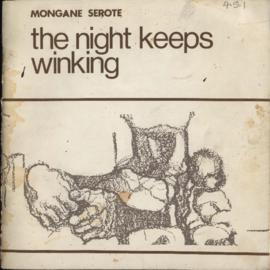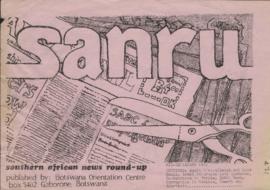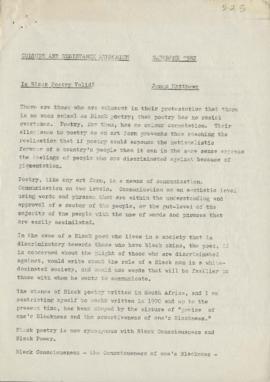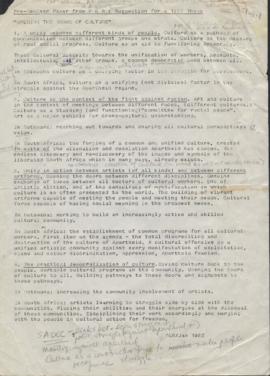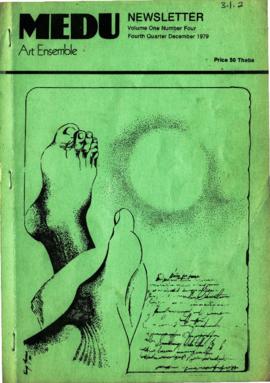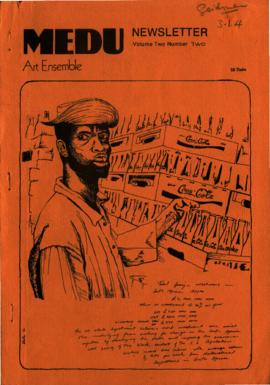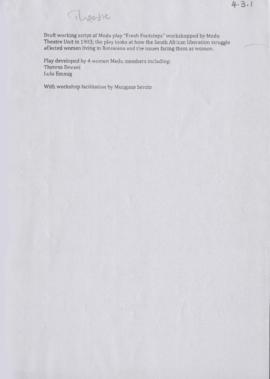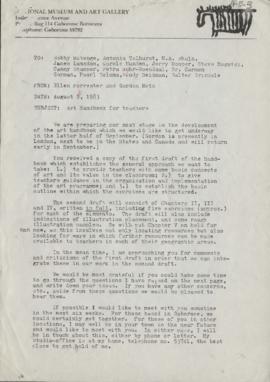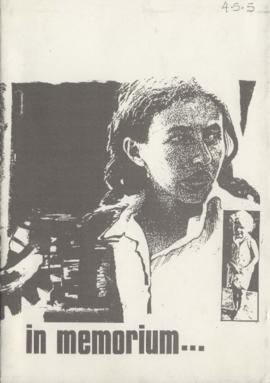Newsletter 1984, Vol. 6, Nos. 1 & 2, Malibongwe
- ZA MEDU MEDU-3-3.1-3.1.14
- Subserie
- 1984
Parte de3-MEDU NEWSLETTERS
Medu declared the year 1983 as the "Year of Women", placing an image of a women with a gun on her back on the front cover of this edition. The first section of this edition covers cultural work both about women and by women. This includes poetry and articles. One poem by Victor Matlou, titled "The Breath of August 9th" engages with the importance of women in the struggle for freedom, starting with his title which refers to the march of women to the Union Buildings on 9 August 1956 to oppose pass laws. The second section of this newsletter explores "Medu's work and progress", with a particular focus on community oriented art projects. This an exploration of the Ngwedi graphic unit by Mognane Serote, the Community Band-Bond by Mandisa and projects undertaken by the Itumeleng Film Unit. Front page graphic by Miles Pelo.
Sin título



